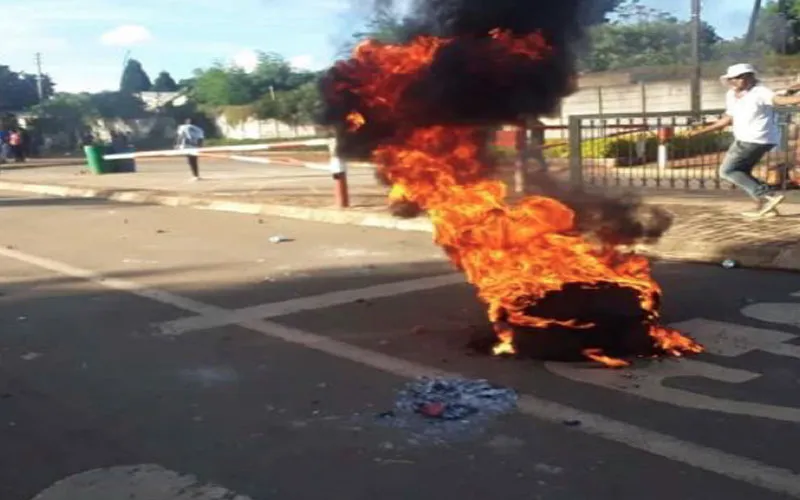Manzini, 20 April, 2022 / 9:00 pm (ACI Africa).
If unaddressed, various acts of violence in Eswatini, including the torching of private and public property, signals “very worse times lying ahead”, locals have told Catholic charity foundation, Denis Hurley Peace Institute (DHPI).
In a message shared with ACI Africa, DHPI has in turn described the situation in the Southern African country as “a ticking time bomb” that signals “a looming civil war”.
In the Wednesday, April 20 report, DHPI reports that since the political unrest in June 2021, Eswatini has not been peaceful.
“People have been killed allegedly by state securities, others have fled the country in fear of being killed, some have been arrested and others have been displaced from their families. Pro-Democracy organizations continue to put pressure on the authorities for meaningful political reforms and the total unbanning of political parties,” DHPI reports.
The Catholic peace entity adds, “On the ground tensions continue unabated. The high numbers of arson attacks being witnessed in the country on a daily basis are a ticking time bomb.”








